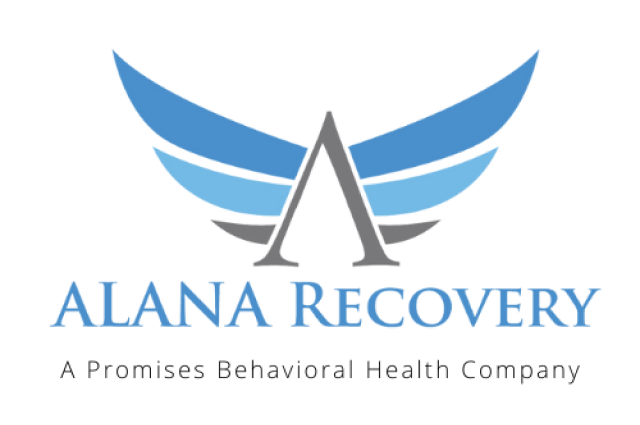If you’re looking for substance abuse treatment in Georgia, you’ll likely find a variety of options for psychotherapy for addiction. Two popular methods often used in addiction treatment are cognitive-behavioral therapy (CBT) and dialectical behavior therapy (DBT). These approaches address distinct but equally important challenges associated with substance use disorders (SUDs) despite their similarities. Knowing how they differ can help you make informed choices about your recovery.
At ALANA Recovery, we integrate various psychotherapy methods, including CBT and DBT, to support clients on their healing journeys. If you’re ready to take the next step toward recovery, contact us today and discover the range of outpatient services we offer.
CBT vs. DBT: What To Know
Cognitive-behavioral therapy and dialectical behavior therapy are both evidence-based treatments that can play a pivotal role in managing addiction, but they operate differently. CBT helps people recognize and change negative thoughts and behaviors, while DBT focuses on managing emotions and building stronger relationships.
Both approaches have been proven to help in addiction recovery. For example, CBT can make a big difference by helping individuals identify their triggers and develop healthier ways to cope.1 DBT, on the other hand, has been shown to improve emotional regulation, making it particularly effective for individuals with substance use disorders and co-occurring conditions like borderline personality disorder (BPD) or depression.2
What Is Cognitive-Behavioral Therapy?
CBT is a structured form of talk therapy that helps you understand the link between your thoughts, emotions, and behaviors. This method is particularly effective for breaking cycles of negative thinking that can lead to substance use. Key parts of CBT focus on helping you:
- Recognize triggers – Understanding the situations or feelings that might lead to substance use
- Challenge negative thoughts – Finding new ways to think about things that could lead to harmful behaviors
- Develop coping skills – Creating healthier ways to handle stress or cravings
CBT is widely used in addiction treatment because it equips clients with practical tools to manage challenges in real time. For example, if a client struggles with stress triggering alcohol use, CBT can help them replace drinking with healthier coping mechanisms.
What Is Dialectical Behavior Therapy?
Therapists originally developed DBT to treat BPD but have since adapted it to address other conditions, including addiction. It focuses on four main components:
- Mindfulness – Developing awareness and staying present at the moment
- Distress tolerance – Learning to handle crises without resorting to substances
- Emotion regulation – Managing overwhelming emotions to rely less on unhealthy coping habits
- Interpersonal effectiveness – Strengthening relationships and learning to express yourself confidently and respectfully
DBT helps people manage their emotions, making it especially helpful for those who experience intense or unpredictable feelings. For instance, someone with co-occurring anxiety and addiction might benefit significantly from learning how to tolerate distress without turning to drugs or alcohol.
What Are Other Types of Psychotherapy?
While CBT and DBT are common in addiction recovery, they’re not the only therapeutic approaches available. Others include:
- Motivational interviewing (MI) – Helps clients resolve ambivalence about change
- Trauma-focused therapy – Addresses the underlying trauma often linked to substance abuse
- Family counseling – Improves family dynamics and support systems
- Mindfulness-based relapse prevention (MBRP) – Combines mindfulness practices with relapse prevention techniques
Each approach has unique benefits, and a well-rounded treatment plan often includes a combination of therapies.
Why Are CBT and DBT Often Used in Psychotherapy for Addiction?
CBT and DBT are frequently chosen for treating addiction because they target common challenges in recovery:
- Identifying root causes – CBT helps uncover the thought patterns and beliefs that fuel substance use
- Helping you build emotional resilience – DBT gives you practical tools to manage intense emotions that might lead to relapse
- Supporting relapse prevention – Both approaches focus on understanding your triggers and finding ways to navigate them
These approaches focus on both the emotional and behavioral sides of addiction, providing a well-rounded path to healing. Combining them can be particularly effective for clients with dual diagnoses, such as addiction and depression.
Benefits of CBT in Addiction Treatment
Cognitive-behavioral therapy can be especially helpful for people recovering from substance abuse, offering:
- Customized coping techniques – Clients learn strategies tailored to their triggers and life challenges.
- Skill development – CBT encourages the development of practical skills, such as effective communication and stress management.
- Relapse prevention – When clients can recognize high-risk situations early, they’re better prepared to stay on track and avoid relapse.
At ALANA Recovery, we rely on CBT because it’s such a powerful tool in helping people overcome addiction.
Take Your First Step Toward Healing with ALANA Recovery in Georgia
Figuring out the difference between CBT and DBT is just one step in creating a recovery plan that works for you. At ALANA Recovery, we’re here to support you every step of the way with therapies that are backed by evidence and tailored to your needs. Whether you’re looking for help with substance use, co-occurring disorders, or both, our caring team is here to walk this journey with you.
You don’t have to do this alone. Reach out to ALANA Recovery today and find out how CBT, DBT, and other therapies can help you take back control and move toward a healthier, brighter future—one step at a time. Contact our team online or call 770.759.7474 now.
Footnotes:

